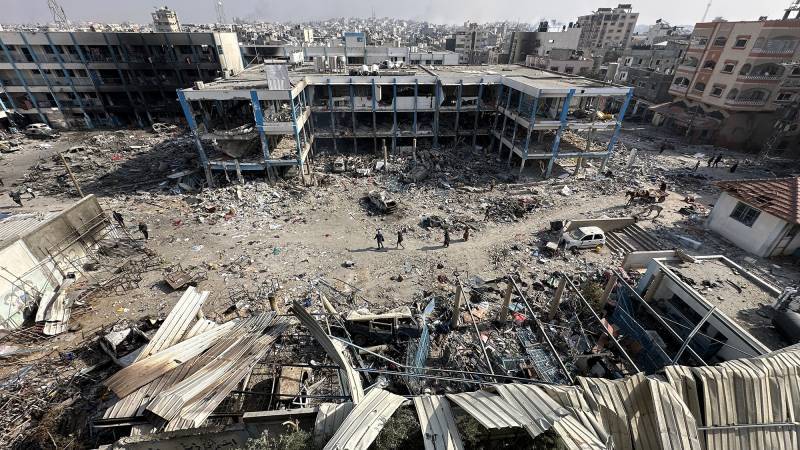Gaza: US Secretary of State Antony Blinken, on his latest mission to rein in the Gaza war, told Israeli leaders on Tuesday there was still a chance of winning acceptance from their Arab neighbours, if they create a path to a viable Palestinian state.
On his fourth trip to the region since October in a so far largely fruitless quest to tamp down the violence, Blinken said he would share what he had heard in two days of talks with Jordan, Qatar, the United Arab Emirates and Saudi Arabia.
After touring Israel’s Arab neighbours, Blinken met with leaders including Prime Minster Benjamin Netanyahu to discuss the “way forward” in Israel’s war in Gaza.
Speaking alongside Israeli President Isaac Herzog ahead of their meeting on Tuesday morning, Blinken said he would share what he had heard from regional countries during a day of meetings with Israel's government.
Meanwhile, at least 57 people killed in Israeli attacks were brought to al-Aqsa Hospital in the last 24 hours, Al-Jazeera reported citing Gaza health ministry. Other 62 injured Palestinians were also brought to the health facility.
Al-Aqsa Hospital is the largest hospital in central Gaza, where Israeli strikes are most intense.
On the other hand, the International Court of Justice will hold hearings this week on a case brought by South Africa accusing Israel of genocide in the Gaza war and seeking an emergency suspension of its military campaign.
The ICJ, also called the World Court, is the highest United Nations legal body, established in 1945 to deal with disputes between states. It should not be confused with the treaty-based International Criminal Court, also in The Hague, which handles war crimes cases against individuals.
The ICJ’s 15-judge panel - which will be expanded by an additional judge from each side in the Israel case - deals with border disputes and increasingly cases brought by states accusing others of breaking UN treaty obligations.
Both South Africa and Israel are signatories to the 1948 Genocide Convention which gives the ICJ the jurisdiction to rule on disputes over the treaty.
All states that signed the Genocide Convention are obliged not only not to commit genocide, but also to prevent and punish it. The treaty defines genocide as “acts committed with intent to destroy, in whole or in part, a national, ethnical, racial or religious group”.


